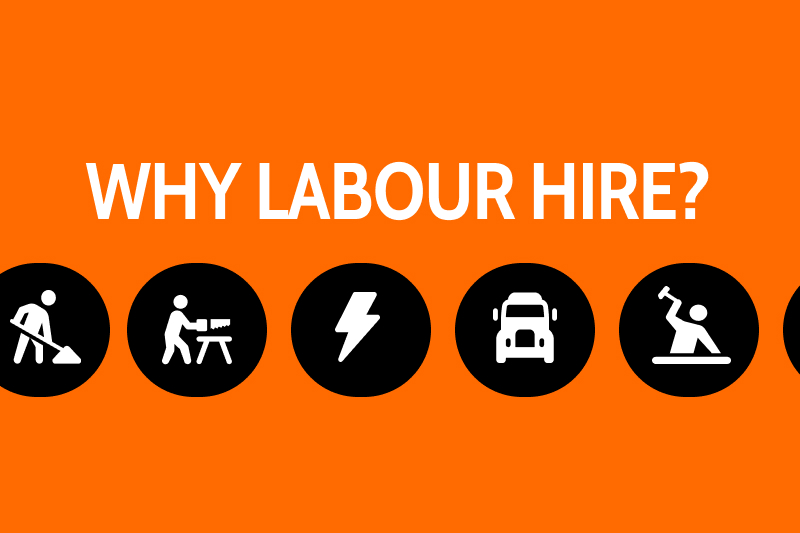How to write a good CV
To apply for any job you first need to write a CV. A good CV is an important part of the application process as it tells us where you have worked and for how long, and what qualifications and licences you have. When we are looking for reliable staff, especially temp staff, it’s important we can quickly and easily see whether you, the job, and the employer are a good fit.
The main headings you will need in your CV are:
- Name & Contact Details
- Personal Statement
- Education & Qualifications
- Certificates & Licences (if relevant to your profession)
- Job History
- Referees
In the below sections, we’ll take you through each part of a good CV and outline what you should include.
Name & Contact Details
Make sure you include your full name, phone number and email address. You might also include your home address. It’s important to to keep all your contact details up to date and clearly displayed at the top of your CV. Use a personal email address instead of a work email address and check that your personal email looks professional. Normally your email address will be your full name.
If you can’t answer your phone during certain hours because you are working, you can write the times you can answer your phone next to your number. This helps your temp agency when contacting you with your next job.
Personal Statement
This is optional but it’s a good idea to include it as it shows your written communication skills, so write this in full sentences and not bullet points. You should write 2-3 sentences describing yourself and your experience.
Use keywords from job adverts to tailor your personal statement to the types of jobs you are applying for. For example, if the advert says it wants ‘temp labourers for Auckland construction sites’, you could say that you are a ‘reliable, hard worker with experience labouring on various large Auckland construction jobs, such as . . .’
You can also say here if you are looking for permanent or temporary work or include any information you think is relevant but not immediately obviously in the next sections. For example, you might play in a successful sport’s team and you want to highlight that you a good team player.
Education & Qualifications / Certificates & Licences
You need to decide which of these headings are the most relevant for your educational background and the industry you are in. Under Education, list the secondary school or tertiary education provider you most recently attended and the dates you studied there. If you have no qualifications then you can leave this heading off. However, if you have gained qualifications since leaving school then you don’t need to include your school education as your qualifications are more relevant and important.
Under qualifications list the most recent qualification first and then work back. Include the institution or education provider you attended and the dates you were there.
Example:
Certificate in Carpentary Weltec, NZ 2018-2019
If it is essential to have certain licences or certificates for the roles you are applying for make them easy to find by having the relevant headings. Include any important information that your employer will need such as licence numbers and expiry dates.
Example:
Safesite Certificate #12345 expires: 24/09/2020
Job History/Work History
List the jobs you have had in reverse chronological order – so list the most recent job first and then work back. This way we can easily see what your last job was, which will be more relevant than the first job you ever had.
For each job you should include the job title, the company name, the dates worked, and then a job description describing the skills you gained or the role you performed. If you list the job title first then it’s easy to see what kind of work you have done and therefore what roles to match you with.
Example:
Carpenter XYZ Construction July-Dec 2019
Outdoor timber construction jobs, including timber framing, piles, and flooring. Worked safely with power tools.
If you have had a lot of similar jobs and you feel you are just repeating the same information under each job description you can emphasise your skills using relevant headings. You still list all the jobs you have had under Job History, but instead of writing a detailed job description for each job make a heading for each major skill. The headings can be keywords from an advert, or key areas for your profession.
Example:
Leadership skills
- Acting supervisor when boss away at XYZ company 1-2 days per week
- Captain of local netball team
- Great verbal communication skills, member of Toastmasters
You can include skills from your personal life or voluntary work if they are relevant to the paid position you are applying for. Think about which skills the employer will be looking for and find evidence from your life that shows you have these skills.
With your layout think about where your strengths lie – is it in your Job History or your Qualifications? If you are fairly new to the workforce you may need to highlight a certificate you recently gained. Whereas, if you have a lot of experience you may want to emphasize your extensive job history. You can put whichever heading is most impressive nearer the top. There are many CV templates available online, but you should change these or simply write your own to suit and show off your skillset.
Referees
As part of your application, we will ask for two references. You need to include the names and contact details of 2-3 referees who can back up what you have said in your CV.
Example:
Sarah Smith Supervisor at XXXX where I was a labourer.
021 555 5555 email: ssmith@gmail.com
Usually your referees are people who have been supervisors in previous, preferably recent, jobs. Ask your referee if you can include them and let them know what positions you are applying for so they are not surprised if they get a phone call.
At Hirestaff, we want to get you working as quickly as possible. A good CV will help us match the best people to the best jobs. Write a good CV that clearly shows your skills and experience so we can help you get your next job.





































